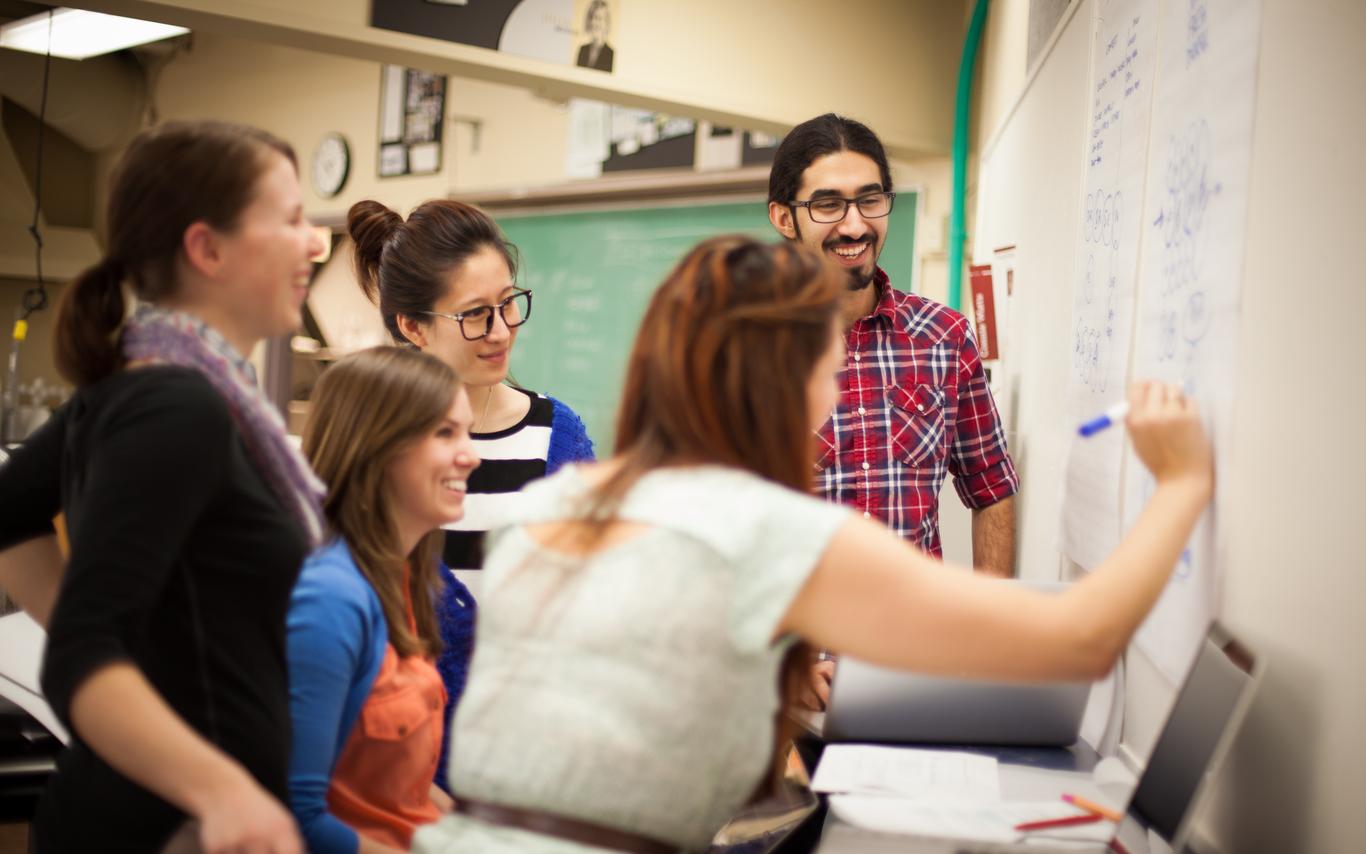Peer Supported Learning (PSL) is based on the Supplemental Instruction (SI) model, developed at UMKC in 1973 as a retention initiative that targets traditionally difficult courses. This international program is grounded in recognized learning theories and has over 40 years of empirical research supporting its effectiveness. More than 3500 institutions, globally, offer the SI program with 27 universities across Canada. The international training centre for SI is still located at UMKC, while Canada's training centre is housed at Guelph University.
This peer-led program is a non-remedial approach to learning that provides a place where students can focus on the course material in an informal environment. These study sessions provide the opportunity for students to learn transferable study skills, ask questions, discuss student life, and make friends. PSL is implemented in traditionally difficult courses in consultation with faculty and supported by the PSL program coordinator.
The PSL program is two programs in one. Not only does it provide support to students as they transition to learning in post-secondary, but it also offers leadership development and career enhancing skills for VIU's emerging leaders.
A wealth of information about SI is available at https://info.umkc.edu/si.
First, we ask for recommendations from the professor. If the student(s) they recommend is not interested or their schedule does not allow them to fulfill the requirements of the role, we contact students who were successful in the specific course. Departments determine the minimum grade for candidates. All candidates must receive a faculty recommendation from the department. All candidates are interviewed by a panel for suitability, and a list of potential hires are sent to the department for approval.
Having a PSL Leader in your class should not have any significant impact on your teaching time. You can support PSL by granting time during the first week of classes for the PSL Leader to introduce themselves and for occasional in-class announcements. It is also beneficial to have faculty encourage students to take advantage of these free study sessions, recognizing that PSL is for ALL students and it is 100% voluntary. Faculty should avoid the notion that PSL is for students who are doing poorly.
PSL Leaders go through intensive training to ensure they do not teach. PSL is grounded in collaborative and active learning theories, which does not encourage lecturing. After this initial training, further training is offered each month. In addition, each leader is observed frequently, and provided feedback on how they are running their sessions.
PSL is a voluntary program, and not all students will want to take part, and the session times may not work for all students. We do not want students to have any perception that their grades could be impacted if they don’t attend sessions, as this would only add unnecessary stress on them.
What if students can’t attend sessions – are there any other options?
Each leader has one discretionary hour, each week, which they can use to either meet one-on-one with a student(s) or hold an extra session. This is usually requested by the student. As part of the process, the student must identify the difficult content that they wish to work on.
We encourage communication between you and your PSL Leader. Having a leader in your classroom provides a great opportunity for you to find out what students are finding difficult, and also allows you to provide feedback to the leader of what you think is important for students to focus on when studying. If you are interested, you can also ask to see the session plan that your leader puts together. In addition, we ask that leaders e-mail or inform the faculty each week indicating what topic areas were reviewed.
This varies depending on how involved they want to be. At the very least we ask that faculty meet with leaders at the beginning of the semester to set expectations and to field questions, if needed, during the semester. Some faculty may want to be more involved and meet with the leader regularly to:
- Discuss what is being reviewed in sessions, and to make recommendations on what to review
- Review leaders’ session plans and activities and provide suggestions
- Provide materials or resources that they want the leader to use
- Debrief how sessions are going and what questions are being asked or what concepts are students still struggling with during PSL sessions
PSL sessions usually include collaborative activities that are based on Active Learning practices. Each session the leader will develop a session plan that has different activities and study strategies to assist students in learning and practicing with the material. Leaders also dedicate time to review note taking, exam prep, time management and other topics that assist students as they transition to learning at VIU. Faculty are welcome to review the leaders session plans or to recommend resources to use in sessions.
Have a question? Email PSL@viu.ca.
